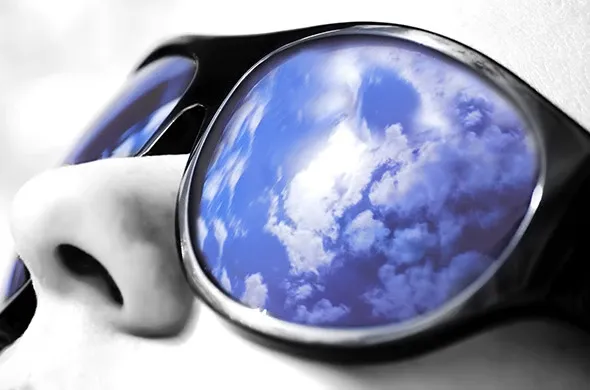Palo Alto Signs $10 Billion Deal with Google Cloud
Palo Alto Networks expanded its strategic partnership with Google Cloud to migrate key workloads to the cloud.

Safilo Group, the eyewear company that makes frames for Dior, Fendi and Hugo Boss, is looking to succeed in a high-tech category where even Google has struggled: smart glasses. According to Bloomberg the Italian company is debuting a set of Internet-connected spectacles next month at the Consumer Electronics Show in Las Vegas. Unlike Google Glass, a product that was discontinued last year, the Safilo frames won’t have a camera or display, they’ll just look like regular glasses.
The Safilo product also will have more limited functions, for now. It will mainly measure brainwaves and send the data to an app installed on a smartphone or tablet. The idea is to let people assess their moods, helping them relax and meditate. Additional features will be added over time, Chief Executive Officer Luisa Delgado said in an interview. But the main selling point may be that Safilo specs won’t make the wearer look like a cyborg. The glasses, under Safilo’s sports eyewear brand Smith, are fashionable enough for everyday use, so they’ll appeal to a broad set of consumers rather than “a few geeks,“ she said.
The Google Glass prototype was phased out in January 2015 after drawing ridicule for its clunky camera, as well as privacy concerns about surreptitious video. The product also was criticized for having a short battery life. Though Google vowed to continue working on the project, Google Glass is widely seen as a failure. Another take on the idea has fared better, especially this holiday season. Snap’s Spectacles, which are mainly to shoot 10-second videos and upload them to the Snapchat app, have largely sold out since they debuted in November.
Luxottica, a Safilo rival that makes Ray-Ban and Chanel frames, sells a product called Radar Pace under its Oakley brand, voice-activated glasses that coach cyclists and runners. Essilor, another eyewear giant, is working on smart glasses as well. IDTechEx estimated sales of smart glasses excluding virtual reality headsets will hit $1.8 billion by 2021 from $6.3 million in 2016. For Safilo, the pricing of its glasses may determine whether the product succeeds.
Safilo spectacles, which weigh about 37 grams, will be sold online next summer in the U.S., Safilo’s largest market. Styles, color and pricing will be disclosed at the CES conference, but the product will debut in sunglass form before being available in prescription eyewear. The technology should eventually be used with other Safilo brands.